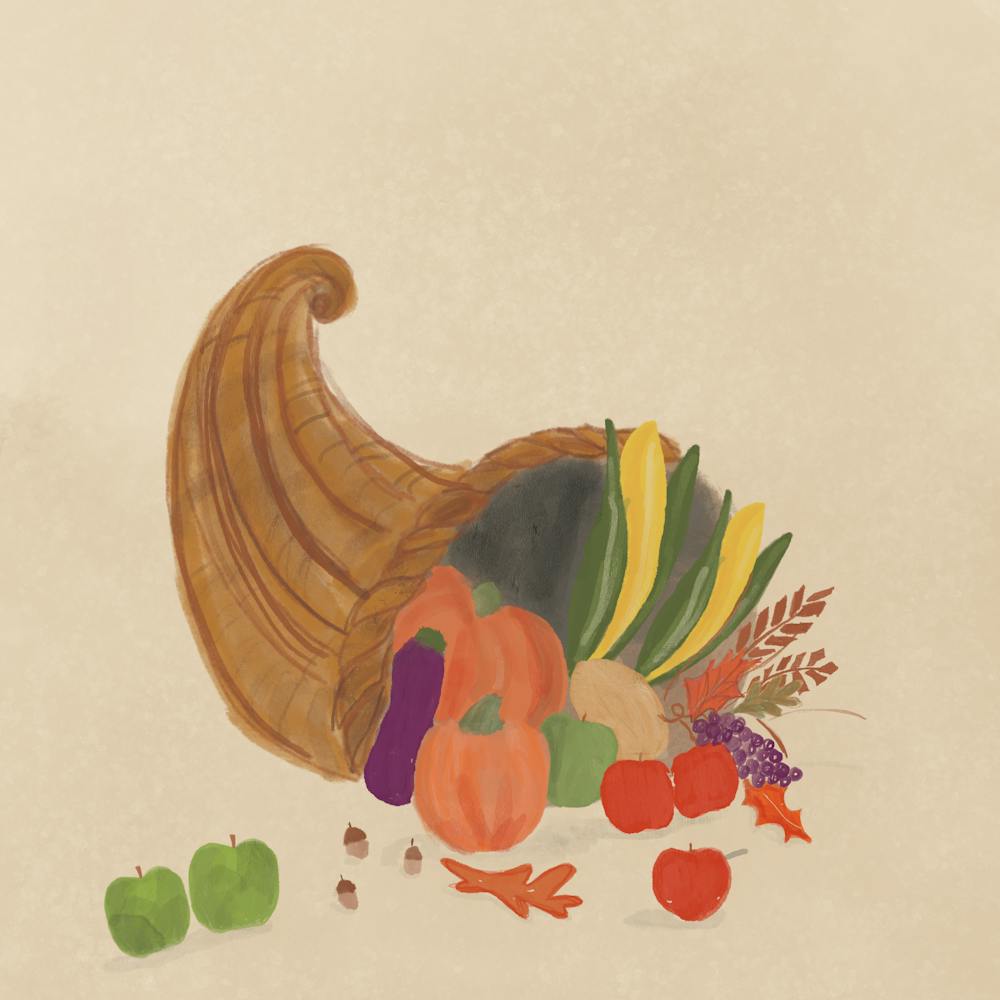You open the door of your grandparents’ house, and the smell of all your favorite dishes sweeps you off your feet. The invisible aromas warm your heart, and the parade of hugs welcomes you. You’ve waited a year for this. It’s finally Thanksgiving.
For me, Thanksgiving isn’t on one day. It’s a week-long celebration of the glorious foods placed in front of me by the people who love me most. But why do we celebrate Thanksgiving? For many of us, it is, in fact, the food: sweet potato casserole, pumpkin pie, the infamous turkey and many more classic dishes.
In November of 1621, the Pilgrims and Wampanoag Native Americans gathered for America’s first Thanksgiving, celebrating the triumphant corn harvest that year. This was the first of many feasts, and it sparked our tradition of celebrating the thankfulness of success.
It is a holiday intrinsic to our country's identity. After the United States won independence and the U.S. Constitution was ratified in 1789, George Washington declared the first Thanksgiving proclamation by the U.S. federal government. Now, we celebrate Thanksgiving on the concluding Thursday of November every year.
Thanksgiving involves many practices that profit from principles of gluttony or greed, and it often involves unpleasant interactions around the dinner table. In addition to this, revelers of this beloved holiday are often blind to its true meaning because of the taxing efforts expected of them.
We know the foundations of Thanksgiving are pure, but has its practice become problematic?
It can become obligatory for families, especially when some of the people you’re seeing at Thanksgiving gatherings are more like acquaintances because you only see them once or twice a year.
Thanksgiving is modernly known as a day of football and feasts. Therefore, that’s what people look forward to when it comes each year instead of interpreting the holiday for what it truly is: a day to share and give thanks.
Another point of controversy is that Americans waste roughly 305 million pounds of food on account of Thanksgiving alone. That isn’t just a waste of nutrients but a waste of energy, resources, water, transportation and the list goes on. If leftover food makes it to the landfill and rots, methane, a more formidable greenhouse gas than carbon dioxide, is released into the atmosphere.
Additionally, self-deceived contentment forages its way through the minds of those who celebrate Thanksgiving. Many people find themselves overeating and over-shopping for the holidays. Black Friday is the main culprit of this misleading factor of saving money but spending it on things you’re only buying because they’re on sale.
Thanksgiving still remains one of America’s most beloved holidays, filled with love, family, food and good old-fashioned American football.
The true meaning of Thanksgiving should drive us to turn all these negatives around.
This Thanksgiving, look around at the loved ones you’re sharing it with and be extra thankful for the food, the people who made it, that one family member you’ve never been sure about, the football players who are out on the field instead of being with their families and all the people around the world who are working.
Reheat your leftovers instead of throwing them out, cherish the time you get with your family and keep America's roots alive by celebrating what’s going well. Take account of your successes, appreciate your community and take the deception out of your contentment.
If nothing else, be thankful.
Do you like this story? The Plainsman doesn't accept money from tuition or student fees, and we don't charge a subscription fee. But you can donate to support The Plainsman.
Culture Writer





